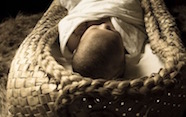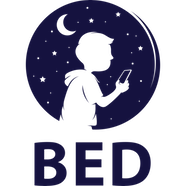Over the past two decades, EDOR members have been discovering how sleep can impact obesity, diabetes, overall health and wellbeing.
EDOR's Sleep Research
POI - Sleeping, eating, and physical activity

The Prevention of Overweight in Infancy (POI) study was a 4-arm randomised controlled trial assessing whether extra education and support around sleep, breastfeeding, diet, and physical activity reduced the number of children showing excessive weight gain over the first two years of life. More than 800 Dunedin families took part in POI.
At two years of age, we observed that children who had received the sleep intervention had approximately half the odds of obesity than children who had not received the sleep intervention. Some exciting results indicate that this benefit is still apparent at 3.5 and 5 years of age. Funding for the original intervention plus follow-up at 3.5, 5 and 11 years of age was obtained from the Health Research Council of New Zealand.
Learn more about the POI study
Moemoeā - Can improving sleep improve wellbeing in tamariki and their whānau?

Getting enough good quality sleep is important for health and wellbeing at every age. However, getting enough good sleep can be challenging in today's world. And many of the guidelines used to promote good sleep do not fit the lived realities for some whānau.
Moemoeā is exploring Māori and Pacific expertise on nurture and connection before sleep, whānau responsiveness, communication and early oral language, and weaving this with western evidence on effective ways of improving sleep in children to develop potential intervention approaches that are appropriate, engaging, useful and easy to use.
These components will create a 'toolkit' that is tailored for Māori and Pasifika families, will support communication and connectedness between children and caregivers, and will incorporate relevant cultural values and traditions.
DREAM - Diet, Rest, Eating and Activity Monitoring

The DREAM study was a randomized cross-over trial investigating whether changing how children sleep affects what and when they eat and how active they are.
Research from the DREAM study found that getting less sleep resulted in children consuming more energy, especially from poorer food choices and highly processed foods. Children also had reduced Quality of Life when they slept less. Interestingly, there was little change in the physical activity patterns of the children.
These results help us to understand why children who sleep less are more likely to be overweight.
BED - Bedtime Electronic Devices 
The BED study aims to understand how the use of electronic media (screens), both before and in-bed, affects sleep and mental health of young adolescents. The BED team are also interested in how this bedtime electronic media use might impact dietary intake the next day.
Over a seven-day period, children (aged 11-14yrs) wore an accelerometer 24-hours-a-day to measure sleep, physical activity, and sedentary time. Our novel research approach has the potential to accurately measure the effect of screen behaviours on key outcomes, such as same-night sleep and next-day mood, wellbeing, eating and activity. The results from this study will provide more specific policy advice and guidance surrounding the bedtime use of electronic media by children.
Pre-School Cam Study - How do pre-bedtime activities affect how well preschool children sleep?
Getting young tamariki to sleep can be challenging at times, and when they are not sleeping well this can affect not only their health and wellbeing, but also that of the whole whānau. We know that pre-bedtime activities such as screen-time, reading, physical activity or eating certain types of food too close to bedtime can influence how well children sleep, but we don't know what particular factors have the greatest impact.
Pre-bedtime activities and routines can be measured by questionnaires but it can be hard for parents to estimate how often and how long children spend on each activity. To overcome this limitation, the Preschool Cam Study used wearable cameras to measure the effect of different pre-bedtime activities, behaviours and routines on children's sleep quality and duration.
We hope this information will be used to refine clinical recommendations and provide new insights for effective ways to improve sleep in this young age-group.
